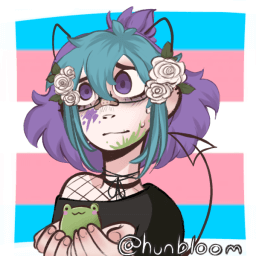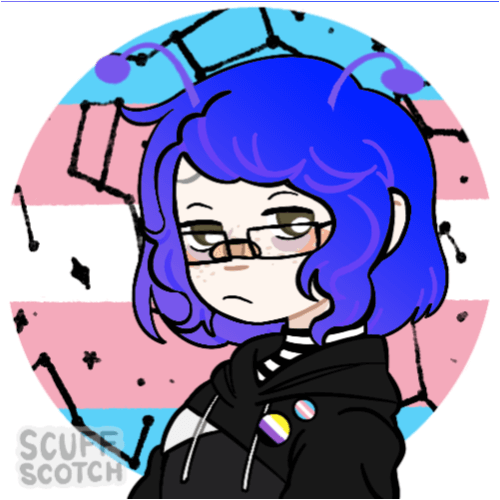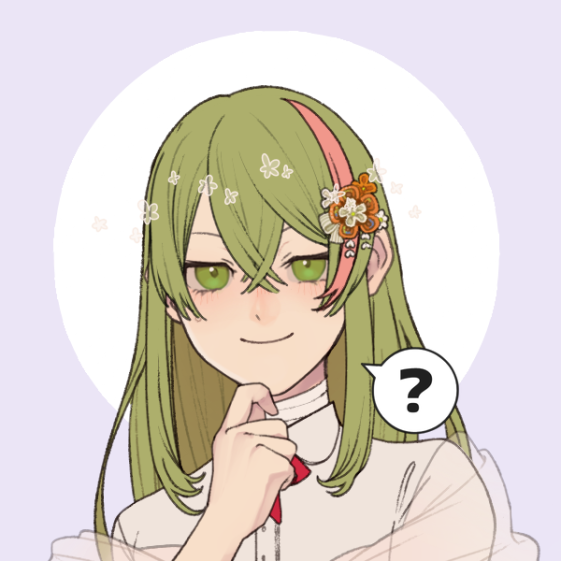Alters can have many roles in a System! Some Alters will have just one, some will have many! Roles are not permanent and they can be flexible. Not all Systems will experience the same or have the same roles.
These are not strict definitions but loose agreements that it seems the community roughly agrees on.
Host
This usually describes the alter that is most often drawn to the front. This alter may most identify with the body, but they may also not identity with the body at all! There can be more than one host, or Co-Hosts. Hosts can have other system roles too! Host alters make sure the daily aspects of life get handled. Some systems hosts may even divide up the work having a "socializing host" or "academic host" or "work host."
The Host is not "the original" or the "core." Some hosts may be unaware that they are apart of a system. If this is the case, they may also have a difficult time accepting their plurality as well.
Protector
This role describes an alter who protects the system from the outside. There are many types of protectors, such as physical, emotional, or passive protectors. Each have their own methods and reasoning's!
Physical Protectors are alters that will try to front to handle physical abuse or confrontation. Physical Protectors may try to become aggressive in an attempt to defend the system from perceived physical threats.
Verbal Protectors may attempt to front to take verbal abuse or lash out with harsh words in try and counter perceived verbal attacks.
Emotional Protectors may front to take emotional abuse or be more of a comforter to other alters, helping to soften and lessen the effects of the abuse.
Sexual Protectors will attempt to front to take sexual abuse.
Caretakers are often considered a type of Protector, but we will talk more about that role further down!
Persecutors are another type of Protector, though they are not always thought of as one. We will talk about that role next.
Persecutor
Persecutor roles are broadly defined as an alter who takes negative actions against the host or system. These negative actions could be self harm, internalized abusive messages, sabotaging goals, or even working to assist abusers. Persecutors generally do these things as method of control. Persecutors believe that the only way to prevent future or potential harm to the system is by using these extreme methods.
The most important thing to remember is that Persecutors are not evil alters or any nonsense like that. Persecutors primary job, like all system roles, is to protect the system. Persecutors just have a bad methodology that is taught from years of trauma. Instead of shaming or trying to represses Persecutors, talk to them and work with them to move beyond the negative.
Caretaker
Caretakers are a type of Protector that helps take care of the system, usually fragile or Emotional Parts [EP's] and sometimes even external people (children for example). Caretakers often become hyper focus on "fixing" others issues and forget to care for themselves, so it is important to help Caretakers regulate themselves. Caretakers are generally kind, if not motherly and can be an introject or modeled off of a real person.
Little / Child Alter
A little is an Alter that is a child, usually around the age of 0-10. There are also sub-terms like "middle" to more accurately describe the age range of parts. Little's are a very common type of alter and most systems usually have several. Little's often talk and act in child-like ways, similarly to a biological child of that age, but can usually also understand abstract concepts or large words as well. Little's may age over time or may remain the same age indefinitely.
Little's often hold memories of abuse that occurred around the age the alter presents as and are often classified as Emotional Parts [EP's].
Gatekeeper
Gatekeepers fulltime job is to maintain a systems stability. This stability can come from preventing unwanted switches, policing sub system boundaries, prevent traumatic memories from "bleeding" through to other parts, and much more! Gatekeepers are usually close to the front to help manage switches.
Introject
Introjects are alters based on people from the real world. This person could be a family member or close adult who cared for the person, someone who provided a positive influence, or simply contain traits that the child saw as required to survive. Introjects can also be based off of historical or fictional characters, the later of which being called Fictives. In these cases the person or character presents some characteristic that the child saw as required to survive or something that would have prevented abuse.
Introjects can also be abusive or Persecutors. These types of Introjects do not provide comfort, care or guidance like other Introjects. Persecutor Introjects instead reenact trauma in order to prevent future abuse.
Fictives
Fictive are a subtype of Introjects and like fictives they are Parts based on people outside the System. Unlike more general Introjects, Fictives are based off of fictional characters from media. Fictives can be based off of any character and from any media including books, fairy tales, video games, youtube series, anime, comics, or even folk tales! Fictives do not always match their "source" 1-to-1, meaning they can diverge heavily.
Fictives, like Introjects, are picked for some trait or characteristic that is perceived to be able to fix a problem or prevent abuse.
Both Introjects and Fictives are well researched and documented by professionals and doctors:
Non Role Labels
The following are other common labels used with Alter/Parts roles. These labels are not specific roles themselves, but you will often see them used in combination with other roles. For example Viv in our System is a Persecutor/Protector, but is also Non-Verbal and Non-Human.
Mute/Non-Verbal [NV]
Some Parts/Alters may be incapable or feel uncomfortable speaking or verbalizing, this is generally not a choice.
Mute/NV Parts will often use other methods to communicate. Online or via text, emotes and emoji are often used in place of words. In person NV Parts may chose to write, draw, or even use sign language [ASL] to communicate. If an NV Part is co-conscious with another Alter, the NV Part may be able to speak. This does not mean the NV Part is no longer NV, more like being supported or spoken through. Once separate NV Part will remain NV.
Lastly any Part can become NV due to stress or a trigger. Generally these are short-term and are alleviated after the stress or situation has passed.
Non-Human
Non-Human Parts describes Parts that do not preset as or do not identify as being human. For similar reasons to Fictives, a plural person may see some traits or elements of something non-human as essential to survival.
Parts that present as animals or animal-like may be trying to emulate some aspect of the animal. For instance a dog/wolf, tiger or other large protective creatures could be used as a Protector because the animal would be able to "save" the individual. Some neglected or persecutor Parts may identify as Demonic or Evil. People subjected to religious trauma such as being told they are evil, going to hell, or possessed can also cause Demonic Parts to form, as noted by Dr Colin Ross.
Some Parts may also perceive themselves as being undead, entirely dead or a ghost. The Diagnostic and Statistical Manual of Mental Disorder [DSM-V] even has a separate definition for this called possession-form identities. These Parts could be the result of such severe trauma that the Part believes they were killed or cannot understand that it did not kill them. Some Parts may view themselves as Robots or robotic due to trauma. Someone only capable of logically mindlessly following orders, not feeling any emotion or attachment in order to avoid punishment or further abuse.
There are many reasons why Parts will hold specific beliefs about themselves. What is most important is to respect their belief and try to understand why.
Theory of Structural Dissociation Labels
The following two definitions are from the Theory of Structural Dissociation. All Alters/Parts can be divided into one of these two categories.
Apparently Normal Parts [ANPs]
ANP's are Alters that manage daily life and usually do not have traumatic memories or experiences. A system can have many ANP's. ANP's will handle roles/jobs such as attachment, socializing, academia and learning, play, and physical needs.
ANP's are such because they are unable to integrate with the traumatic memories or experiences held by Emotional Parts [EP's]. This issue with integration may cause the ANP to become phobic or highly avoidant of anything that may remind or "trigger" the EP.
Emotional Parts [EPs]
EP's are alters that hold memories or experiences of traumatic events. EP's will generally have more issues grounding and staying in the present. They may often experience flashbacks and full sensory experiences of the trauma (i.e. seeing, hearing, feeling like you are there). Some EP's may even be "stuck" in the traumatic experience, unaware time has past that the event is over and can no longer affect them.




